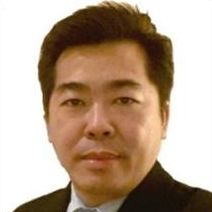River Engineering and Water Resources Management for Sustainability
A special issue of Sustainability (ISSN 2071-1050). This special issue belongs to the section "Sustainable Water Management".
Deadline for manuscript submissions: closed (31 December 2023) | Viewed by 968
Special Issue Editors
Interests: urban stormwater and river basin management; flash flood; sustainable urban drainage system; integrated river basin management; urban drainage; river modelling; water resources management; drought and water shortage management; sedimentation and water quality improvement; water quality modelling
2. School of Hydraulic and Environmental Engineering, Changsha University of Science & Technology, Changsha 410114, China
Interests: coastal hydrodynamics; sustainability of coastal and ocean resources; security and stability of coral reef; effective utilization of water resources; intelligent algorithm and information technology in hydraulic engineering
Interests: water resources management; water engineering; hydrology; hydrological modeling; environment hydrologic; hydro-environemtal engineering; flood modeling; rivers hydraulics; water quality; coastal and estuarine development
Special Issues, Collections and Topics in MDPI journals
Special Issue Information
Dear Colleagues,
The world is currently facing a trio of water-related issues affecting many people at an alarming rate: too much water, causing flooding; too little water, causing water stress; and polluted water, making it useless. Water is an important natural resource and is the elixir of life. Moreover, rivers are the source of water and may be referred to as lifelines. The sustainability of water resources management and river engineering is indeed fundamental for the achievement of all 17 of the United Nations' Sustainable Development Goals (SGDs) for better living in the future. With about 97% of all the water sources coming from rivers, the time has come for a global effort expedite the implementation of water resources best management practices and river engineering approaches to reduce the impact on both the quantity and quality of water in our river systems. Water resources management is closely linked with river processes and activities.
The Special Issue, therefore, focuses on sustainable water resources management and river engineering and welcomes contributions of best practices, new approaches, new ideas, and novel solutions. We welcome papers that are related, but not limited, to any of the following topics:
- Water resources management;
- River engineering and management;
- Sustainable water management for agriculture;
- Water management optimization;
- River sedimentation and transport;
- River restorations and regulations;
- Irrigation and drainage;
- Flood and drought.
Dr. Sai Hin Lai
Prof. Dr. Changbo Jiang
Dr. Fang Yenn Teo
Guest Editors
Manuscript Submission Information
Manuscripts should be submitted online at www.mdpi.com by registering and logging in to this website. Once you are registered, click here to go to the submission form. Manuscripts can be submitted until the deadline. All submissions that pass pre-check are peer-reviewed. Accepted papers will be published continuously in the journal (as soon as accepted) and will be listed together on the special issue website. Research articles, review articles as well as short communications are invited. For planned papers, a title and short abstract (about 100 words) can be sent to the Editorial Office for announcement on this website.
Submitted manuscripts should not have been published previously, nor be under consideration for publication elsewhere (except conference proceedings papers). All manuscripts are thoroughly refereed through a single-blind peer-review process. A guide for authors and other relevant information for submission of manuscripts is available on the Instructions for Authors page. Sustainability is an international peer-reviewed open access semimonthly journal published by MDPI.
Please visit the Instructions for Authors page before submitting a manuscript. The Article Processing Charge (APC) for publication in this open access journal is 2400 CHF (Swiss Francs). Submitted papers should be well formatted and use good English. Authors may use MDPI's English editing service prior to publication or during author revisions.
Keywords
- water resources
- river engineering
- river management
- agricultural water
- water optimization
- river sedimentation
- river transport
- river restorations
- river regulations
- irrigation
- drainage
- flood
- drought







